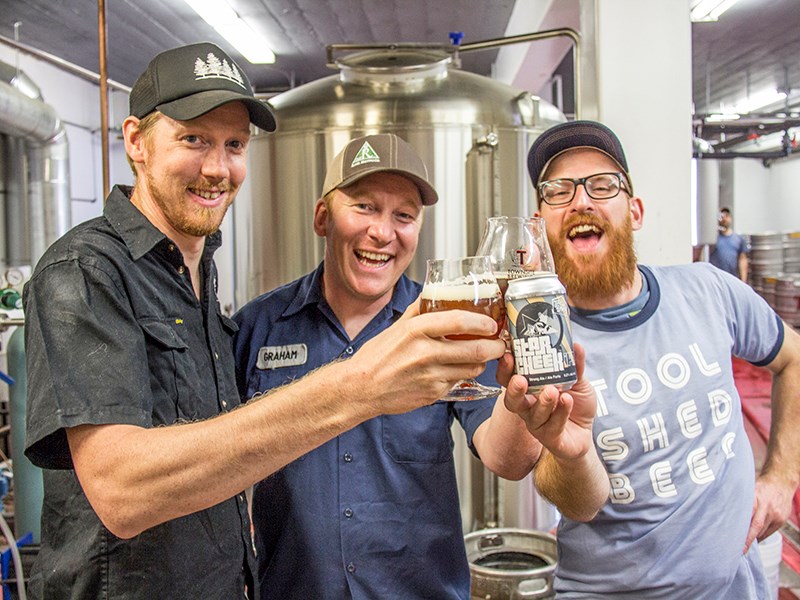Beer brought the Sherman brothers back to Powell River. Graham, who now lives in Calgary, and his younger brother Garrett, now a resident of Sydney, Australia, were last here 15 years ago for Graham’s wedding.
Spending a day making a special batch of beer with Townsite Brewing’s brewing engineer Cédric Dauchot was the reason for returning.
The three redheads concocted a Belgian red ale recipe and gave it a name lifted from South Park, the groundbreaking and outrageous adult cartoon created by Trey Parker and Matt Stone.
“Turns out we’re all gingers, so what else but a beer called No Souls Ale,” said Graham, referencing an episode in which the character Cartman describes gingers as having no souls.
It’s a common marketing tactic in the business of craft beer to appeal to the millennial demographic. References to popular culture, cheeky product names, label design and swag are just part of the business of selling the product.
While the key to the $20-billion industry is craftsmanship and high product quality, the art of storytelling is also used to great effect.
At 4 Pines Brewing Company, where Garrett is the brewer, they have a story that is, literally, out of this world. In 2011, Saber Astronautics Australia and 4 Pines got together to create the first beer ever to be drunk in space.
On February 26, 2011, onboard a zero-gravity flight known as the “vomit comet,” 4 Pines’ Vostok Space Beer was served.
“No one had sent alcohol into space before,” said Garrett. “We didn’t know if it was going to blow up or kill the guy. So he went up and drank this stuff and got really wasted, really quickly. Zero gravity gets you drunk quick.”
It was an instant marketing phenomenon, followed by massive international media attention and the number-one-clicked video in Australia the day it was released online.
Many craft breweries have a story behind their founding and products. Graham is the co-owner of fast growing Tool Shed Brewing Company, named because he started brewing beer in his backyard tool shed.
Calgary already had a number of established breweries that followed the venerable Big Rock Brewery, which pioneered the craft beer business in Canada in the early 1990s. Big Rock laid the path for many brewers, said Graham.
Tool Shed will brew 10,000 hectolitres this year in a 15,000-square-foot facility.
Winning craft beer competitions also helps in marketing; it gives brewers bragging rights. Garrett’s brews have received gold medals from the Australian International Beer Awards, one of the largest competitions in the world. One of his beers bested arguably the most successful worldwide beer brand in history.
“We were up against Guinness and we got best stout in the world,” said Garrett.
Compared to Tool Shed and 4 Pines, Townsite is a small brewery making 2,000 hectolitres annually. According to Dauchot, the brewers’ meeting of minds and palates was not just about the opportunity to do a special marketing campaign and sell product.
“We won’t lose money, we won’t make money,” said Dauchot. “It’s just mostly fun that these guys are from Powell River, they came back and we have made a batch together.”



